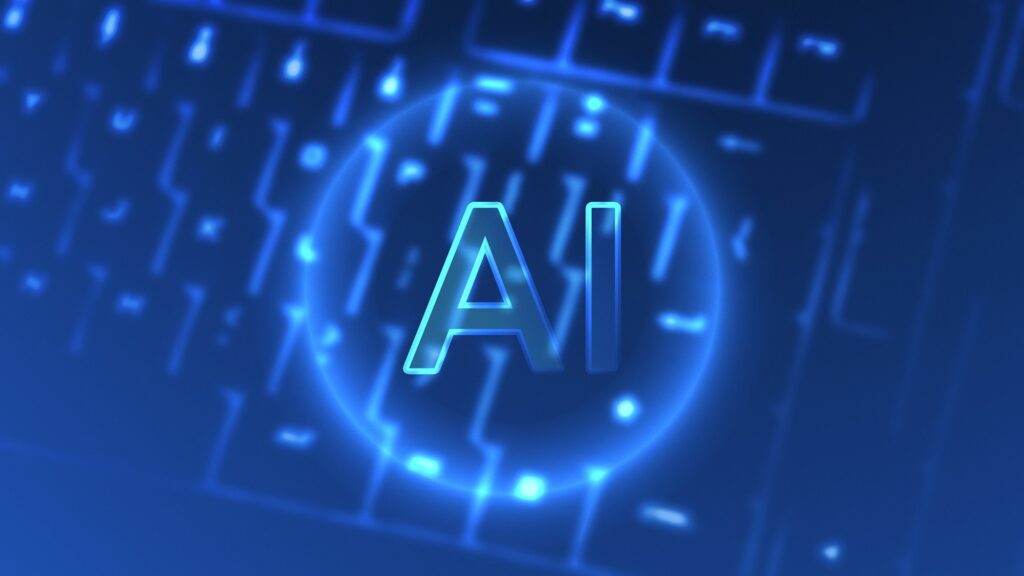
Imagine a world where your project deadlines aren’t just met, but exceeded ahead of time; where every task, no matter how tedious, is streamlined and automated, giving you the freedom to focus on what truly matters.
Welcome to the realm of AI technology in project management.
As businesses evolve and face increasingly complex challenges, integrating artificial intelligence into your project management strategies could be the game-changer you’ve been seeking.
“AI isn’t just a tool; it’s a trusted ally in the quest for efficiency,” says Samantha Davis, a leading expert in AI technologies.
In this article, we’ll explore how AI tools can enhance project management efficiency, ensuring your projects are not just completed but excelled.

Project management has always been about balancing numerous tasks, deadlines, and teams to achieve a common goal.
In recent years, AI technology has emerged as a game-changer, offering tools and solutions that significantly enhance the efficiency of project management practices. But how exactly does AI technology bring about this transformation?
Let’s delve into the specifics. AI stands for Artificial Intelligence, a branch of computer science that involves creating systems capable of performing tasks that would typically require human intelligence.
This includes things like learning, reasoning, problem-solving, and decision-making. When applied to project management, AI can streamline processes, reduce errors, and provide insights that improve project outcomes.
This shift toward AI-powered project management can be broken down into several key benefits:
Overall, integrating AI into project management practices isn’t just a trend; it’s a strategic move that can lead to significant improvements in how projects are planned, executed, and monitored.
As we explore further, you’ll discover practical tips and best practices for implementing AI technology in your projects, cementing its role as an indispensable tool for future success.
In today’s fast-paced business world, project management has become more complex and demanding. Teams are increasingly dispersed, deadlines tighter, and clients more discerning.
The need for efficient project management processes is more critical than ever. That’s where AI technology comes in.
By integrating AI into your project management workflows, you can streamline operations, optimize resource allocation, and ultimately achieve better results.
Imagine the possibility of having a virtual assistant that not only keeps track of your schedule but also highlights potential risks and provides actionable insights.
This is not just a futuristic dream but a current reality thanks to AI. Tools powered by artificial intelligence can help project managers in numerous ways:
As you can see, AI offers a plethora of advantages that can drastically improve the efficiency and effectiveness of your project management practices.

When incorporating AI technology into your project management processes, it’s vital to follow a set of best practices.
These guidelines help ensure that AI tools are not only integrated smoothly but also used to their fullest potential, enhancing overall project efficiency.
Start by defining your project goals. What specific tasks or challenges do you want AI to address? Whether it’s streamlining task assignments or providing predictive analytics.
Having clear objectives will make it easier to choose the right AI tools and measure their impact effectively.
Not all AI tools are created equal. Evaluate the features of various AI solutions to find the ones that best meet your project’s needs.
Look for tools that offer easy integration with your existing software and can provide actionable insights tailored to your industry.
AI systems thrive on data, but the quality of that data can make or break the effectiveness of your AI initiatives.
Make sure your data is clean, relevant, and up-to-date. Implement regular data audits to maintain high data quality, thereby ensuring more accurate AI-driven outcomes.
AI implementation should not be a siloed effort. Engage cross-functional teams to ensure a well-rounded perspective.
Involving team members from different departments helps to identify various pain points and opportunities for AI to add value. This collaborative approach also helps in tailoring AI applications to suit specific needs.
After deploying AI tools, continuously monitor their performance and impact on project efficiency. Use the insights gained from AI to make informed decisions and adapt your strategies as necessary.
AI is a dynamic field that evolves, so your approach to using AI should be equally flexible and responsive.
Equip your team with the skills required to leverage AI technologies effectively. Provide training sessions and resources to help your team understand how to interact with AI tools and interpret their findings.
The more comfortable and proficient your team is with AI, the better the outcomes will be.
By adhering to these best practices, you can optimize the integration and application of AI in your project management processes, thereby enhancing efficiency and achieving better project outcomes.
Efficient resource allocation is crucial for the success of any project. AI technology optimizes this process by analyzing various data points to provide actionable insights.
AI-driven solutions consider factors such as team member skills, task complexity, and deadlines, enabling project managers to assign resources more effectively and strategically.
One of the standout features of AI in resource allocation is predictive analytics. By evaluating historical data and current project parameters, AI can forecast future resource needs, allowing you to preemptively address potential bottlenecks.
This foresight leads to more accurate scheduling and avoids over- or under-utilization of resources.
For instance, an AI tool might predict a spike in workload during a project’s critical phase, prompting you to reassign or augment resources accordingly.
Decision-making becomes more data-driven and less intuitive with AI. Machine learning algorithms process vast amounts of data to identify patterns and trends that might not be apparent to human managers.
This data-centric approach helps in making informed decisions about resource allocation, budget adjustments, and task prioritization.
AI provides project managers with the clarity they need to adapt resource plans dynamically, based on real-time insights.

Apart from strategic planning, AI can also handle routine resource management tasks such as tracking resource availability and generating assignment reports.
By automating these repetitive tasks, AI frees up project managers to focus on higher-level strategic planning and stakeholder communication.
Automation ensures that resources are allocated efficiently, reducing delays and improving project timelines.
Imagine a scenario where an AI-powered tool identifies that a particular team member is consistently overbooked. The system can suggest redistributing their tasks to underutilized team members, balancing the workload more effectively.
Such real-world applications showcase AI’s ability to create a more balanced and productive project environment by ensuring optimal resource allocation.
In summary, leveraging AI for resource allocation not only enhances efficiency but also ensures a more balanced workload, reduces the risk of project delays, and contributes to the overall success of your projects.
By adopting these AI-driven strategies, you can transform your project management practices for optimal performance.
Embarking on the journey to integrate AI in project management requires more than just adoption of new tools; it necessitates a thorough training program for your team.
This ensures everyone is well-versed with AI functionalities and can leverage these tools effectively. Here’s how you can get started.
Start with the Basics: Begin by introducing your team to the core concepts of AI. Demystify terms like machine learning, predictive analytics, and automation.
Use interactive workshops or e-learning modules to make this foundation strong. An informed team is better equipped to explore and exploit the full potential of AI.
Hands-On Experience: Theory is crucial, but hands-on practice is where real learning happens. Encourage your team to use AI tools in controlled project environments.
Set up small, low-risk projects where they can test features, understand AI recommendations, and see results firsthand. This applied learning will boost confidence and competence.
Regular Updates and Training Sessions: Technology evolves quickly, and AI is no exception. Schedule regular training sessions to keep your team updated on the latest advancements and tool functionalities.
Consider bringing in AI experts for advanced workshops or tapping into online courses from reputed platforms to continuously upskill your team.
Develop AI Champions: Identify team members who are particularly adept at understanding and using AI tools.
Designate them as AI champions who can mentor others, troubleshoot issues, and serve as a bridge between the AI tools and everyday project management activities.
This peer-led support can significantly enhance the comfort level and proficiency across the team.
Feedback Loop: Finally, maintain an open feedback loop. Encourage team members to share their experiences – both positive and challenging.
Use this feedback to improve training programs and tweak AI tool implementations. This iterative approach ensures that the AI integration process is smooth and continuously optimized.
Machine learning (ML), a subset of artificial intelligence, plays a pivotal role in enhancing project management efficiency.
By learning from vast amounts of data, ML algorithms can identify patterns and provide insights that human analysis might miss.
This capability is particularly vital in projects with complex datasets, enabling project managers to make informed decisions swiftly and accurately.
One of the most significant contributions of ML in project management is predictive analytics. ML models can predict potential project risks, timeline delays, and budget overruns by analyzing historical data.
These predictions help project managers to proactively address issues before they become critical, thereby maintaining project momentum and efficiency.
ML can significantly enhance resource allocation. By analyzing current workloads, skill sets, and availability, ML algorithms can recommend the best possible distribution of tasks across team members.
This ensures that resources are utilized efficiently, leading to better project outcomes and higher team productivity.
Machine learning aids in decision-making by providing data-driven insights. For instance, when faced with multiple project paths, ML can simulate various scenarios to suggest the most efficient path based on project goals and constraints.
This empowers project managers to make choices that align closely with the project’s overall objectives.
Creating comprehensive project reports can be tedious. However, ML can streamline this process by automatically generating detailed reports based on real-time project data.
This not only saves time but also ensures that stakeholders receive accurate and up-to-date information, facilitating better communication and transparency.
By leveraging machine learning, project managers can transform how they handle projects, shifting from reactive to proactive management, thereby significantly enhancing efficiency.
AI enhances decision-making in project management by leveraging predictive analytics, budget forecasting, and simulations.
It can analyze past project data to identify trends and patterns, helping project managers anticipate potential challenges and make informed decisions.
This predictive capability allows teams to proactively address issues before they escalate, ensuring smoother project execution and better outcomes.
AI helps in resource allocation by using advanced algorithms to predict the resource needs of a project accurately. Predictive analytics can forecast supply and demand, ensuring the right resources are available at the right time.
This can also include optimizing workloads and identifying potential bottlenecks, allowing for more efficient use of resources and minimizing downtime.
AI significantly impacts project timelines and deadlines by providing more accurate scheduling and risk assessment. AI tools can analyze historical data to predict potential delays and identify the factors most likely to impact project timelines.
This allows project managers to adjust plans proactively and allocate resources more effectively, ensuring projects stay on track and deadlines are met more consistently.
AI improves communication within project teams by streamlining communication channels and providing real-time updates.
AI-powered tools can facilitate better collaboration, automate routine communications, and ensure everyone is on the same page.
For example, AI can automatically summarize meetings, track action items, and send reminders, reducing the chances of miscommunication and enhancing overall team coordination.
The cost benefits of using AI in project management are substantial. By automating routine tasks and improving resource allocation, AI helps reduce labor costs and minimizes waste.
Predictive analytics can prevent costly delays and budget overruns by identifying potential issues early.
Additionally, AI can enhance overall project efficiency, reducing the time and expense required to complete projects, thereby providing a strong return on investment.
Harnessing AI technology in project management is no longer a luxury but a necessity in today’s fast-paced business environment.
By integrating AI tools like Notion AI and Basecamp, you can streamline various aspects of your projects, from resource allocation to predictive analytics, and achieve unprecedented levels of efficiency and productivity.
Remember, the key to reaping the full benefits of AI lies in its proper implementation and thorough training for your team.
By following best practices and continuously adapting to new advancements, you’ll not only enhance project outcomes but also foster an innovative and collaborative work culture.
In conclusion, embracing AI in project management is a step towards future-proofing your business, making it more resilient and agile amidst the dynamic market landscape.
Start your journey with a clear objective, choose the right tools, and invest in your team’s capability to ensure a seamless transition and sustained success.



